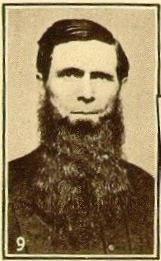| Bringing in the Sheaves | |
|---|---|
| by Knowles Shaw | |
 Hymn writer Knowles Shaw | |
| Genre | Hymn |
| Written | 1874 |
| Based on | Psalm126:6 |
| Meter | 12.11.12.11 with refrain |

"Bringing in the Sheaves" is a popular American Gospel song used almost exclusively by Protestant Christians (though the content is not specifically Protestant in nature). The lyrics were written in 1874 by Knowles Shaw, who was inspired by Psalm 126:6, "He that goeth forth and weepeth, bearing precious seed, shall doubtless come again with rejoicing, bringing his sheaves with him." [1] Shaw also wrote music for these words, but they are now usually set to a tune by George Minor, written in 1880. [2]